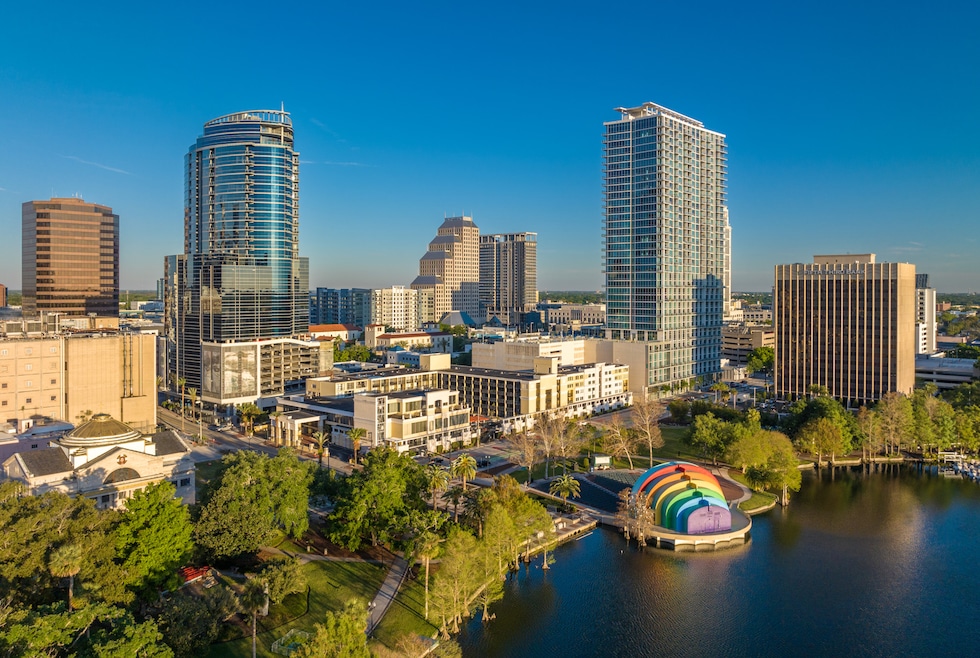While Central Florida is experiencing the same housing market slowdown seen in parts of the country, the region’s condo sales are sinking under the weight of mounting challenges.
In April, Orlando saw a 1.3% drop year over year in the median home price overall, a trend seen in some of the top US markets, according to Homes.com data.
However, a breakdown of the Central Florida numbers by property class paints a slightly different picture.
Prices of detached homes in the city rose from $475,000 to $485,000 over the year. Condos, on the other hand, dropped by nearly 8%, from $225,000 to $207,500.
Condos have also seen a 40% inventory increase versus a 29% increase for single-family houses. And condos have gone from an average of 66 days on market to 81. Single-family homes went from 59 days to 63.
Condos feel market shifts sharply
Walter Borgen, owner of ReMax Signature in Ormond Beach, said condos often feel small shifts in the housing market more acutely than other sectors.
“Condos in our area are typically bought as second homes,” he said. “It’s more of a lifestyle choice. The cost of ownership is then an issue for a lot of people.”
Financial uncertainty in the markets makes people less likely to purchase second homes and less likely to sell.
“You have people who are more financially stable,” he said of those who buy beach condos for vacation properties. “A lot of times, you’ll notice [condo] inventory will increase and take a little longer on market because you don’t see as many ‘have to’ sales.”
However, while some issues for the sector are recent, Florida’s condo woes have been growing for years.
Some owners face hefty assessments amid new mandates
The largest pressure on the state’s condo market began in 2021 following the collapse of a building at Champlain Towers in the Miami suburb of Surfside. The tragedy, which killed 98 people, led to the passage of a bill the following year mandating inspections and reserve standards for condos.
Buildings of three or more stories over 30 years old (or 25 years old if less than 3 miles from a coast) required new inspections, and all condos had to maintain a reserve fund to cover 10 potential repair items:
- Roofing
- Load-bearing walls and primary structural components
- Flooring
- Foundation
- Fireproofing and fire protection systems
- Plumbing
- Electrical systems
- Waterproofing and exterior paint
- Windows
- Any other item with a deferred maintenance cost or replacement cost of more than $10,000
The updated requirements have led to assessments exceeding $100,000 for some owners, according to news reports.
Rising insurance premiums, rental sites exact toll
In addition to these new fees, insurance costs have continued to rise in the state following active hurricane seasons, a trend that the National Oceanic and Atmospheric Administration predicts will continue in 2025.
“Owners of attached housing have been contending with high monthly assessments that are tied to the master policy of a development,” said Lisa McNatt, Home.com and CoStar’s Central Florida director of market analytics. “Any increases in the master policy are passed on through homeowners association dues, along with the pro-rata share of any assessments for repairs or improvements that need to be made. Failure to pay either of those could result in a lien, and as a result, the attached housing market is under pressure right now.”
But Borgen said there are less obvious factors straining condos as well. The rise of short-term rental sites such as Airbnb and VRBO has inflated condo prices because people see them as potential income generators, even though most associations in tourist towns such as Daytona Beach have rules against such uses.
“A lot of people were still buying them, thinking they could get around that, but finding out that it isn’t as easy as they thought,” Borgen said.
In this case, falling prices also operate as a course correction.
Immigration policy uncertainty makes 'potential owners nervous'
Demand is also being affected by an unlikely source: Canada. Snowbirds from the "Great White North" make up a substantial portion of Central Florida condo owners.
“Daytona is not really an international hub,” Borgen said. “If we have international people, it would be Canadians.”
He said President Trump’s trade war and rhetoric regarding Canada and immigrants have made potential owners nervous.
“I have had conversations with Canadian owners that were concerned about their ability to own something. Like will their rights be taken away or heavier taxes placed on them,” he said. “Some of the effects will just be the uncertainties.”
Borgen believes the market will eventually stabilize, though that might be with lower prices.
“If demand doesn’t come back, then prices will come down until people feel it’s worth it to pay these high monthly costs to have what they want.”

